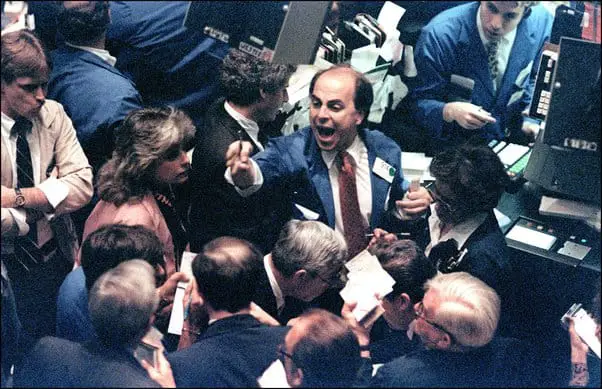Due to historical conventions and practical reasons, the stock market operates daily, from Monday to Friday. This schedule allows for a structured framework for trading activities, providing consistency for investors, traders, and financial institutions worldwide. The closure over the weekend and on certain holidays gives market participants time to digest news, economic data, and other information that might affect stock prices, facilitating more informed decision-making when the market reopens.
In recent articles, we covered European stock market open and close times, US market open and close, and Asian market open and close. Additionally, we presented S&P 500 trading hours, best forex sessions, when the forex market opens, and where the forex market closes on Friday. Finally, we explained when the stock market is open on Saturdays and when it is open on Sundays.
The current schedule also provides a necessary break for the technological systems and infrastructure that support trading activities, allowing for maintenance and upgrades. Moreover, the five-day workweek aligns with the standard business hours of most other industries, promoting a synchronized economic environment. Finally, this schedule helps manage and reduce price volatility that cats operate continuously, offering a more stable and predictable trading environment.

Is the Stock Market Open on Sundays?
Usually, the stock market is not open on Sundays in most countries. However, The Tel Aviv Stock Exchange, Dubai Financial Market, and Abu Dhabi Securities Exchange operate on Sundays because they align with the regional workweek of Sunday through Thursday, reflecting cultural and religious practices in their respective countries.
Stock markets like the Tel Aviv Stock Exchange (TASE) in Israel, the Dubai Financial Market (DFM), and the Abu Dhabi Securities Exchange (ADX) in the United Arab Emirates open on Sundays due to cultural, religious, and regional workweek schedules distinct from the Monday-Friday norm seen in much of the world. In Israel, the workweek is Sunday through Thursday to accommodate the Jewish Sabbath, observed from Friday evening to Saturday evening. Consequently, TASE aligns with the Israeli workweek, allowing it to operate when most Israelis are at work, thus facilitating domestic trading activities. This unique schedule also offers international investors the opportunity to trade on a day when most other global markets are closed, potentially capturing gains from market-moving news that occurs over the weekend.
In the United Arab Emirates, including Dubai and Abu Dhabi, the Sunday-Thursday workweek is adapted to align with the Islamic holy day, Friday. This arrangement reflects the broader regional practice in many Middle Eastern countries, where the Islamic workweek is designed to accommodate Friday prayers. By operating on Sundays, DFM and ADX ensure continuity of business and trading activities aligned with local customs and practices, enabling efficient financial transactions within the regional market.
These schedules also underscore the global diversity in stock market operations, acknowledging that financial markets must adapt to local cultural and religious practices to serve their respective economies effectively. Moreover, for international traders and investors, this diversity in operating hours across global markets means that there are more days in a week when at least one primary stock market is open, allowing for extended opportunities to engage in trading activities across different time zones.
Lastly, the operation of these markets on Sundays highlights the interconnectedness of global finance, where differences in operating hours can offer strategic advantages for arbitrage and early reactions to weekend news. This adaptability in operation schedules ensures that the global financial system remains dynamic, responsive, and inclusive of various cultural and economic contexts.
Major Stocks Markets on Sundays
Major stock markets worldwide are typically closed on Sundays, reflecting the standard Monday through Friday workweek that dominates global financial and business operations. Among these, the most notable are:
- New York Stock Exchange (NYSE), USA: As the largest stock exchange in the world by market capitalization, the NYSE follows a Monday through Friday trading schedule, closing on weekends to align with the U.S. business week and federal holidays.
- NASDAQ, USA: Similar to the NYSE, the NASDAQ operates on a Monday through Friday schedule. It is known for listing many high-tech companies and adheres to the standard U.S. business week.
- London Stock Exchange (LSE), United Kingdom: The LSE, one of Europe’s leading stock exchanges, operates from Monday to Friday. This schedule accommodates the British workweek and financial institutions.
- Tokyo Stock Exchange (TSE), Japan: Asia’s largest stock exchange by market capitalization, the TSE, follows a Monday through Friday trading pattern, closing on weekends and Japanese national holidays.
- Shanghai Stock Exchange (SSE), China: Reflecting China’s workweek, the SSE operates from Monday to Friday, providing a platform for trading stocks and bonds in mainland China.
- Hong Kong Stock Exchange (HKEX), Hong Kong: The HKEX, serving as a critical gateway for international investors into China, follows a Monday to Friday trading schedule consistent with Hong Kong’s workweek.
- Euronext, Pan-European: Spanning several European countries, Euronext operates on a Monday through Friday basis, reflecting the standard workweek across its member countries, including France, the Netherlands, and Portugal.
These closures on Sundays across major stock markets are due to aligning with the traditional workweek, allowing for a pause in trading that helps digest news and economic data and providing a break for the maintenance of technological systems. This uniformity in operating schedules facilitates synchronized global financial operations despite regional variations like those seen in the Middle East.
























